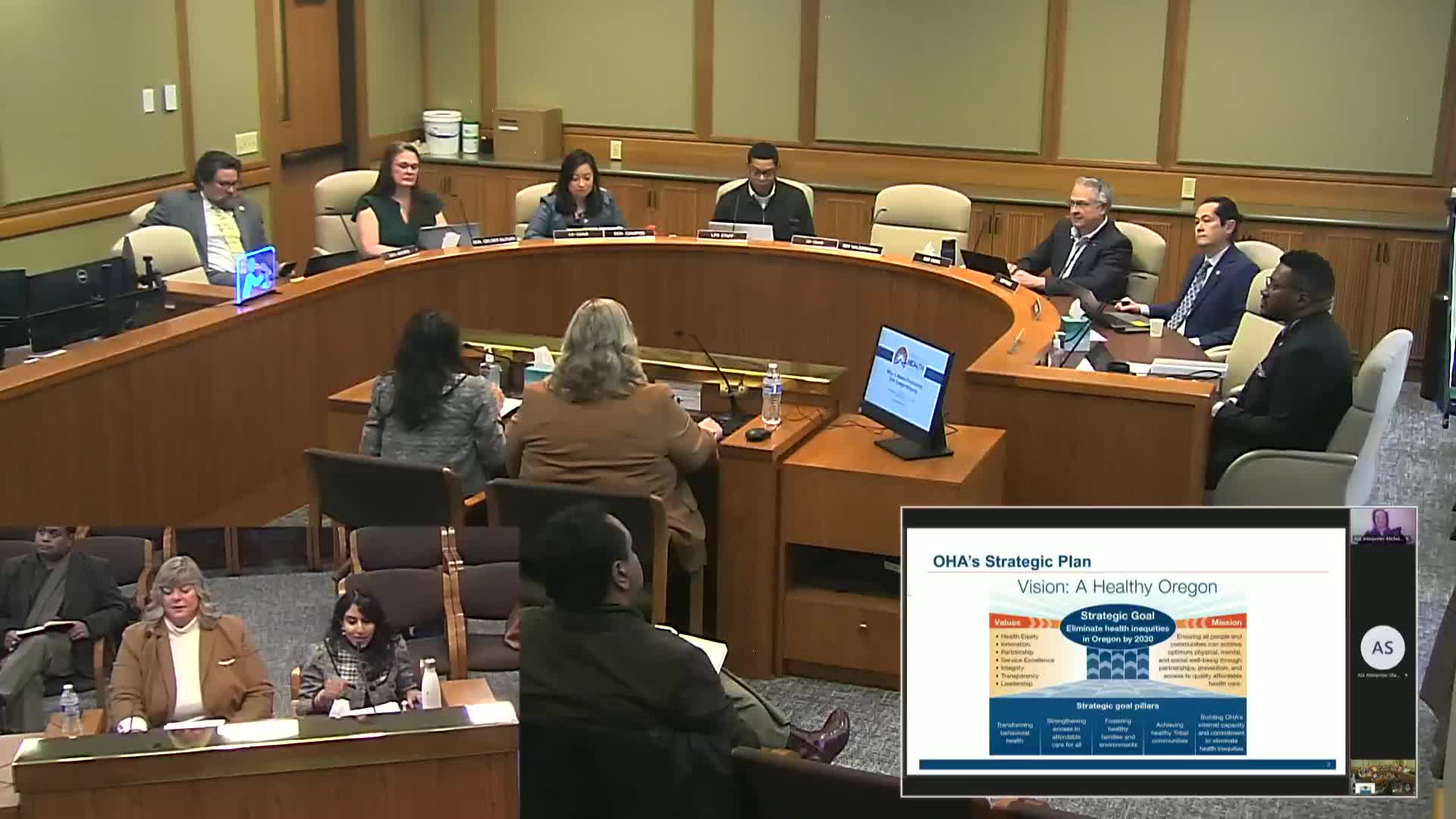OHA director tells lawmakers she will continue occasional clinical shifts at Stanford; committee raises ethics concerns
Get AI-powered insights, summaries, and transcripts
Subscribe
Summary
Sejal Hathi, director of the Oregon Health Authority, told the Joint Subcommittee on Human Services she will continue occasional unpaid hospitalist shifts at Stanford and that written ethics advice indicates out-of-state clinical work would not create a conflict with her regulatory duties.
Sejal Hathi, director of the Oregon Health Authority, told the Joint Subcommittee on Human Services on Feb. 20 that she will continue occasional unpaid clinical shifts as a hospitalist at Stanford University and that she had sought legal advice concluding out-of-state clinical practice would not create a conflict of interest with her duties as OHA director.
Hathi told the committee she would average about one clinical shift per month, had completed three shifts since her November appointment and would not expect to travel for clinical work during her upcoming maternity leave; she said the governor had given permission for the work. “I was trained as a hospitalist,” Hathi said, noting hospital-based inpatient care cannot be done remotely and that outpatient practice would not be appropriate given her training.
Several lawmakers pressed Hathi about potential conflicts and whether she sought formal advice from the Oregon Government Ethics Commission. Senator Hayden and other members said Hathi’s public statements and a Stanford LinkedIn post announcing her faculty affiliation had caused concern among some senators. Hathi said she sought legal consultation and that written guidance she received from the state ethics office supported the view that practicing at a hospital OHA regulates in Oregon could create a conflict, but doing clinical work at an out-of-state hospital would not. She said she could circulate the written advice to the committee.
“There was an implication that a hospital hired me to do clinical work as a clinician because of my role in government in Oregon. My point there was that is not at all germane to the criteria they used when deciding whether I was qualified to see patients in the hospital,” Hathi said.
Senator Hayden said Hathi’s remarks “kind of sounds arrogant” and questioned whether Hathi’s background gave her latitude to diverge from expectations conveyed at appointment. Lawmakers asked whether Hathi had sought the Oregon Government Ethics Commission’s advice before accepting the post; Hathi said she sought verbal advice and, after accepting the job, obtained written advice she could share with the committee.
Representative Nelson asked for specifics about the hospitalist work and whether Hathi would work in an intensive-care setting; Hathi said she is an internal-medicine hospitalist who cares for non-ICU medical patients (for example, people with diabetes, heart failure, infections and sepsis).
Hathi said the LinkedIn post by Stanford was not intended as a formal announcement and that she was not aware of the post until after it appeared. Several lawmakers suggested alternative ways the director could maintain clinical connections, such as working at community health centers; Hathi said outpatient clinic work would not suit her inpatient hospitalist training and that her weekend shifts were partly tied to family travel and being available to see hospitalized patients when workforce shortages exist.
Committee members requested any formal ethics guidance the director received and noted the public-interest importance of transparency when a regulatory agency head maintains outside clinical activity.
